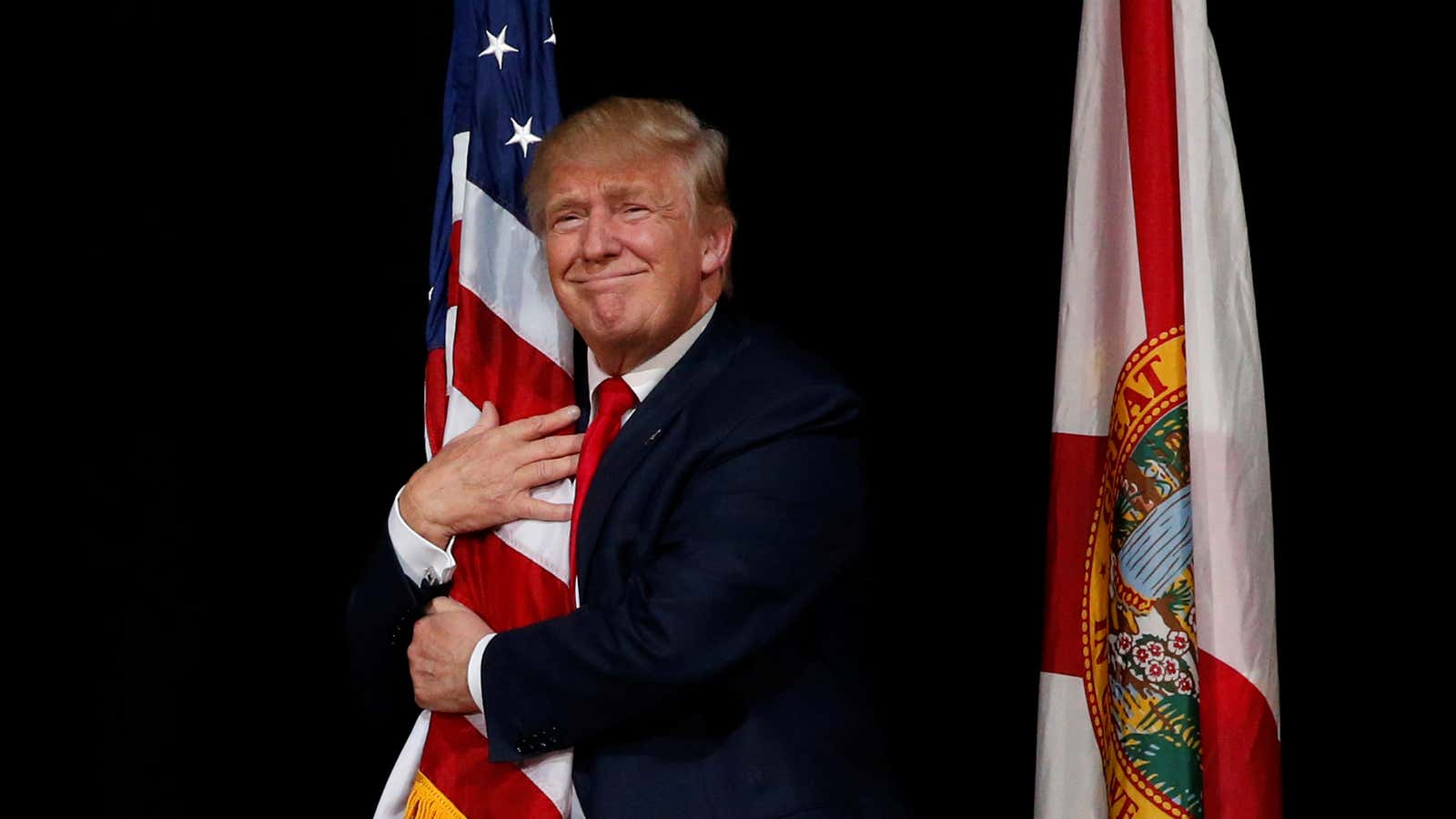The US has a history of playing the bully in global climate negotiations. It tried to weaken the 1997 Kyoto Protocol—the world’s first emissions-reductions treaty—and then never ratified it. In response, the EU stepped up, boosted the treaty’s ambitions, and got 84 other countries on board.
Now, US president Donald Trump is attacking the 2015 Paris climate agreement, which his predecessor formally signed and ratified. Trump said the US will quit the agreement and “see if we can make a deal that’s fair.” Legal experts, UN negotiators, and US allies like France, German, and Italy have all said the accord cannot be renegotiated.
Trump could face stiffer penalties for his decision than former presidents Bill Clinton and George W. Bush received for their U-turn on Kyoto. One way to retaliate would be to levy a border-adjustment carbon tax or tariff on American exports. If the rest of the world has agreed to reduce their emissions, the renegades could be forced to pay a price if they want to continue trading with Paris-bound partners.
How large could the tax be? “If it is to be proportionate, it should cover the harm caused to the Earth from the production of the goods, a harm that will not be reflected in their price if the US presses ahead with the unfettered use of fossil fuels,” writes Chris Hope of Cambridge University’s Judge Business School.
The best estimate for the environmental harm caused by carbon-dioxide emissions puts the cost at between $150 and $250 per metric ton of CO2. Taking into consideration America’s emissions and its GDP, Hope estimates that a tax rate of between 6% and 10% on US exports would enough to compensate for the damage caused by its emissions. Europe imports about $400 billion worth of goods and services from the US every year, so the tax would be worth between $25 billion and $40 billion annually, on paper. But potential effects on the price and availability of of goods, and the diplomatic fallout from such a move, would surely test America’s trading partners’ resolve in their commitment to reducing emissions.
Former French president Nicholas Sarkozy floated a similar idea in November, when Trump first suggested he might withdraw the US from the Paris agreement. His suggested tax rate was between 1% and 3%. Around the same time, officials from Mexico and Canada began discussing carbon tariffs.
“A carbon tariff is a power tool,” Dirk Forrister of the International Emissions Trading Organization, a nonprofit group, told New York Times last year. “There is no need to start a trade war over climate change. But it might happen.”
